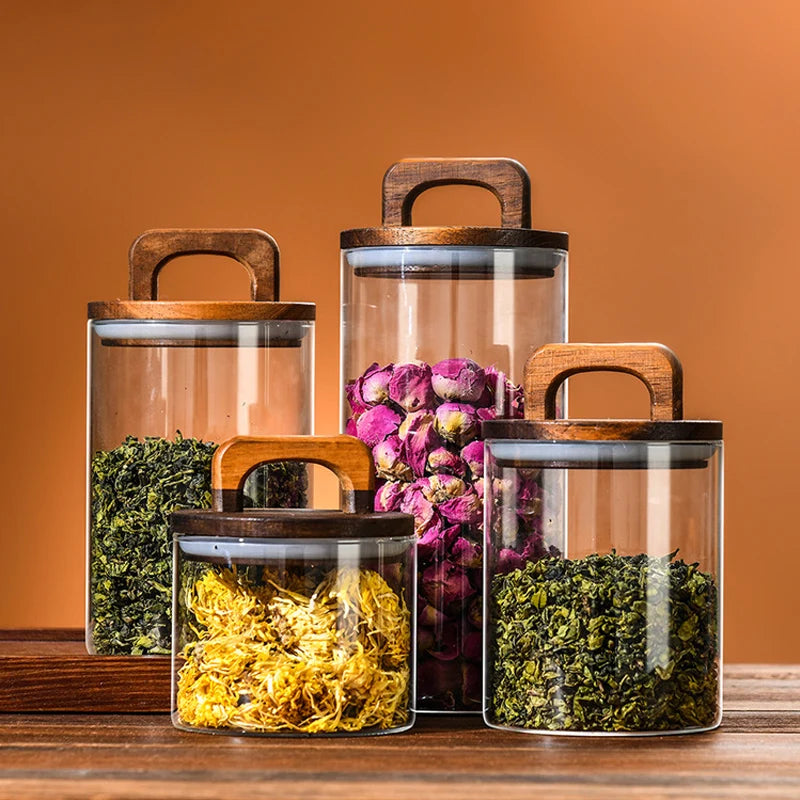The Magic of Cashews in Vegan Cuisine:
Cashews, a staple in many vegan dishes, have been revered for their versatility and natural creamy texture. They've been the secret weapon of many vegan chefs and home cooks, enabling them to recreate dishes that traditionally rely on dairy. But how did this nut, native to the tropical climates of Brazil, become the superstar of vegan cooking?
Origin and Global Journey
Cashews were first discovered in Brazil's northeastern coast. Portuguese explorers, in the 16th century, took them to parts of India and Africa. From there, the popularity of cashews spread globally. It wasn't until the health and wellness movement began to gain traction, and the rise of veganism in Western societies, that cashews found their place as a dairy alternative. Forward-thinking chefs began to experiment, realizing that when soaked and blended, cashews could mimic the richness of creams, cheeses, and even yogurts.
Vegan Cashew Cream: A Modern Essential
Today, vegan cashew cream is more than just an alternative; for many, it's a preference. It carries the richness of heavy dairy creams without the associated lactose or cholesterol. Beyond its health benefits, its neutral taste makes it an excellent canvas for various dishes - be it sweet desserts, savory soups, or spicy dips. This adaptability makes vegan cashew cream an invaluable tool in a modern vegan kitchen, allowing a bridging of culinary traditions and dietary preferences.
What Is A Vegan Substitute For Cashew Cream?
There are several vegan substitutes for cashew cream, depending on the texture and flavor you're aiming for. Here are some common alternatives:
Coconut Milk/Cream: Full-fat coconut milk or cream can be used as a direct substitute for cashew cream in many recipes. It has a creamy texture similar to cashew cream but does impart a coconut flavor, which might not be suitable for all dishes.
Almond Cream: Made similarly to cashew cream, almonds can be soaked and blended to create a creamy texture. The resulting almond cream is slightly less creamy than cashew cream and has a distinct almond flavor.
Tofu: Silken tofu can be blended until smooth to create a creamy base. It's relatively flavorless, making it a versatile substitute. The consistency can range from thick (like Greek yogurt) to thinner (like heavy cream), depending on the tofu's water content.
Soy or Oat Cream: Available in some stores, these are commercial plant-based creams made from soy or oats. They can be used as direct substitutes in many recipes that call for cashew cream.
Avocado: For raw food recipes or cold dishes, blended ripe avocado can offer a creamy texture. However, it has a distinct flavor and color, so it's more suitable for certain dishes, like smoothies or cold soups.
White Beans: Blended white beans, like cannellini or navy beans, can provide a creamy texture. This option is excellent for adding creaminess to soups and sauces while also bumping up the protein content.
Cauliflower: Steamed and blended cauliflower has become a popular base for creamy sauces and soups. It has a mild flavor and can mimic the texture of dairy-based creams when blended until smooth.
When choosing a substitute, consider the final dish's flavor profile and the cream's intended purpose. Some alternatives might work better for sweet dishes, while others are more suitable for savory recipes.
Can You Substitute Cream For Cashew Cream?
Yes, you can substitute cream for cashew cream in many recipes, but there are a few considerations to keep in mind:
Flavor Difference: Cashew cream has a distinct, nutty flavor, while dairy cream has a rich, milky taste. Depending on the recipe, this flavor difference may or may not be noticeable.
Consistency: Cashew cream can vary in consistency from a light, milky texture to a thick, paste-like consistency, depending on how much water is added during blending. When substituting, ensure you match the consistency of the cashew cream to that of the dairy cream required in the recipe.
Fat Content: Dairy cream, especially heavy cream, has a high-fat content, which can influence the texture and richness of a dish. Cashew cream is also rich but may not have the same fat content as heavy cream. This difference can affect the final outcome, especially in recipes where the fat content is crucial, like in some desserts or sauces.
Vegan or Dairy-Free Considerations: If you're substituting dairy cream for cashew cream in a vegan or dairy-free recipe, ensure that other ingredients in the recipe are also not derived from animal sources or contain lactose.
Cooking Behavior: Dairy cream can sometimes be whipped, and it can also curdle under certain conditions. Cashew cream won't whip in the same way as dairy cream, and it's less likely to curdle when heated, making it more stable in some cooking situations.
Nutritional Profile: Cashew cream and dairy cream have different nutritional profiles. Cashew cream contains plant-based fats, protein, and other nutrients, while dairy cream provides animal fats, protein, and vitamins like Vitamin A and D.
When making the substitution, always consider the specific requirements of your recipe. In many cases, especially for soups, sauces, and some desserts, the substitution can be made seamlessly. However, in recipes where the properties of dairy cream are essential (like whipped cream), cashew cream may not be an appropriate substitute.
Is Cashew Cream Healthier Than Cream?
Comparing cashew cream to dairy cream involves assessing various health and nutritional aspects. Both have their benefits and considerations:
Fat Content:
- Dairy Cream: Is rich in saturated fats. Consuming high amounts of saturated fats can raise LDL (bad) cholesterol levels, which is a risk factor for heart disease.
- Cashew Cream: Contains primarily unsaturated fats, which are generally considered heart-healthy. Unsaturated fats can help reduce LDL cholesterol levels and inflammation in the body.
Nutritional Profile:
- Dairy Cream: Contains essential nutrients such as calcium, vitamin A, and vitamin D. It's also a source of proteins.
- Cashew Cream: Offers magnesium, phosphorus, and iron, along with plant-based proteins and heart-healthy fats. Cashews also contain antioxidants, which can combat oxidative stress.
Calories: Both dairy cream and cashew cream are calorie-dense, given their high fat content. The exact calorie count can vary based on the preparation and specific product or recipe, but they are generally comparable.
Lactose and Digestibility:
- Dairy Cream: Contains lactose, which some people cannot digest due to lactose intolerance.
- Cashew Cream: Is naturally lactose-free, making it suitable for those with lactose intolerance or dairy allergies.
Environmental Impact: Producing cashews generally has a lower environmental impact in terms of greenhouse gas emissions, land use, and water use compared to dairy farming. However, there are concerns about the working conditions in the cashew industry in some countries, and sourcing fair-trade cashews can be a solution.
Dietary Considerations: Cashew cream fits into vegan and dairy-free diets, while dairy cream does not.
Processed vs. Natural: Store-bought versions of both dairy cream and cashew cream may contain additives, stabilizers, or other processed ingredients. However, both can be made at home in their most natural forms.
In conclusion, whether cashew cream is "healthier" than dairy cream depends on individual dietary needs, health goals, and ethical considerations. For those looking to reduce saturated fat intake, manage cholesterol, or follow a vegan/dairy-free diet, cashew cream may be a preferable option. On the other hand, those seeking certain nutrients found in dairy might prefer traditional cream. As with any food, moderation and balance are key.
Is Cashew Cream Good For You?
Cashew cream is a popular alternative to dairy-based creams among vegans and those who are lactose intolerant or allergic to dairy. When considering the health benefits of cashew cream, it's essential to evaluate its nutritional content and how it fits into one's overall diet. Here are some benefits and considerations of cashew cream:
Benefits of Cashew Cream:
Nutrient-Dense: Cashews are rich in a variety of vitamins and minerals. They contain magnesium, which is essential for bone health, muscle function, and energy production; and phosphorus, which works alongside calcium to build strong bones and teeth. Cashews also provide iron, zinc, and potassium.
Heart-Healthy Fats: Cashews are a source of monounsaturated fats, which are associated with heart health. These fats can help reduce bad cholesterol levels, potentially reducing the risk of heart disease.
Plant-Based Protein: Cashew cream provides a source of plant-based protein, which can be especially beneficial for vegans and vegetarians.
Lactose-Free: For those who are lactose intolerant or allergic to dairy, cashew cream is a naturally lactose-free alternative.
Versatility in Diet: Cashew cream can be used in a variety of dishes, from savory to sweet, making it a versatile ingredient for those following dairy-free or vegan diets.
Considerations:
Caloric Density: Like other nuts, cashews are calorie-dense due to their fat content. It's essential to consume cashew cream in moderation, especially if one is watching their calorie intake.
Potential Allergies: While cashew cream is an excellent alternative for those allergic to dairy, cashews themselves are a tree nut, which some individuals might be allergic to.
Oxalates: Cashews contain oxalates, naturally occurring substances found in plants, animals, and humans. For individuals susceptible to forming kidney stones, consuming high amounts of oxalates can increase the risk.
Phytic Acid: Cashews contain phytic acid, which can inhibit the absorption of certain minerals like iron, zinc, and calcium. However, the impact of phytic acid on mineral absorption in our overall diet is still debated, and many believe its effects are minimal in a varied diet.
In conclusion, cashew cream can be a healthful addition to one's diet when consumed in moderation and as part of a balanced diet. As with any food, it's essential to consider individual health needs and conditions. If uncertain, consulting with a nutritionist or healthcare professional is always a good idea.






































